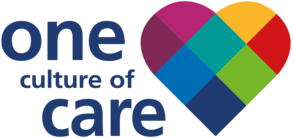Colleagues on Ward 8 at CRH took person-centred care to the next level recently, after spotting through a patient’s Hospital VIP Passport that his special interests included Dr Who and superheroes.
Hospital VIP Passports are used by people with learning disabilities to help explain their individual needs during their hospital admission. Clinicians can also use them to provide additional safety information to ensure teams put the individual at the centre of any decision making.
A gentleman who was recently admitted to CHFT brought his hospital VIP passport with him. This helped colleagues across multiple disciplines to use it to guide the care they gave, which resulted in a much more positive, patient-centred experience for him.
CRH 8A Ward Manager, Linda Denham, said: “We knew from his passport that he really enjoyed watching TV, so we were able to ensure a TV was available for him to watch his favourite shows and keep him feeling relaxed.
“His passport also stated his special interests - which included Doctor Who and superheroes. Once we knew this, it meant we could help make his stay more positive. Colleagues played the Doctor Who theme tune for him, pretended that journeys through hospital corridors were secret passages, placed superhero stickers on his bed and even created a cardboard Tardis that he could follow when he was needing to be moved.”
All of this meant that he was able to build trust and a positive rapport with the different teams looking after him.
Other information in a hospital passport can include:
- Medical history
- Level of support required
- Communications tips
- Religion
Linda added: "The passports help us create a seamless admission, stay and successful discharge for our patients. Having information regarding likes and dislikes ensures the minimal disruption and creates a more relaxing environment for the patient and their families. They are an absolute Must Do."
Lead Nurse for Learning Disabilities, Amanda McKie, said: "Hospital passports are an essential communication tool to help you get to know a person with a learning disability. Please make sure patients have one completed, read them and make the necessary reasonable adjustments."
See more about CHFT's Hospital Passport on the intranet Supporting patients with learning disabilities good practice guidelines - CHFT Intranet
Want to know more about the importance of hospital passports?
An NHS England lunch and learn session will be held on Tuesday, 30th September called The Importance of Health and Hospital Passports. It will be run between 12:15 and 13:15. More information can be found in the flyer below.


